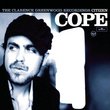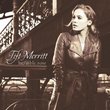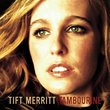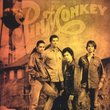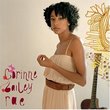| All Artists: Trio Mediaeval, Anonymous Notre Dame School, English Anonymous, Sungji Hong, Perotin, English Polyphony Title: Stella Maris Members Wishing: 6 Total Copies: 0 Label: ECM Records Release Date: 10/10/2005 Genres: Rock, Classical Styles: Chamber Music, Historical Periods, Classical (c.1770-1830) Number of Discs: 1 SwapaCD Credits: 1 UPC: 028947630210 |
Search - Trio Mediaeval, Anonymous Notre Dame School, English Anonymous :: Stella Maris
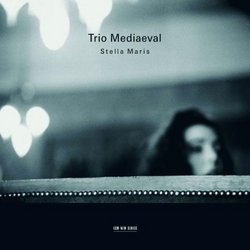 | Trio Mediaeval, Anonymous Notre Dame School, English Anonymous Stella Maris Genres: Rock, Classical
|
Larger Image |
CD DetailsSimilarly Requested CDs
|
CD ReviewsSeeds Sown in Medieval Times Flower with a Contemporary Work Grady Harp | Los Angeles, CA United States | 09/28/2005 (5 out of 5 stars) "The Trio Mediaeval continues its fine reputation and tradition as an exemplary group capable of capturing the essence of the Gregorian chant while encouraging contemporary composers to emulate this classic form of music with new compositions. For this their third recoding the Trio continues to survey early music for a cappela voices and this time adds the tenor voice of John Potter as the ethereal leader in 'O Maria, stella maris, conductus'. The result is incandescent music making. In addition to the medieval works for which they are well known, this album present the premiere recording of 'Missa Lumen de Lumine' by contemporary Korean composer Sunji Hong. While the twenty-five minute Mass incorporates the fundamental structure of the original chants, Hong suffuses the writing with subtle contemporary moods and passages that are astonishingly appropriate. The work is divided into Kyrie, Gloria, Credo, Sanctus, and Agnus Dei. The performance is impeccable contributing to the fact that Hong has amazing gifts as a composer. Highly Recommended. Grady Harp " Early Vocal Music at its Best S. E. Vogiatzis | Athens, Greece | 05/14/2007 (5 out of 5 stars) "Trio Mediaeval can easily claim the title of the best early music female group worldwide. This is simply great and moving music and while there is a prevailing sense of somber piety throughout, there is enough variety in each selection to keep the listener thoroughly engaged. Trio Mediaeval's deeply expressive singing and virtuoso technique are up to the highest standards and you have to consider that some of the pieces make rather pressing demands on the Scandinavian singers. ECM proved once more that, even in early music works (if not particuraly in this genre), provides unprecedented quality of performance in every sense. " Superb Singing doggedstrength | 05/12/2007 (5 out of 5 stars) "Trio Mediaeval makes glorious, soul-stirring music and this recording majestically brings their unique sound home: you'll feel their voices reaching inside you."
|

 Track Listings (12) - Disc #1
Track Listings (12) - Disc #1